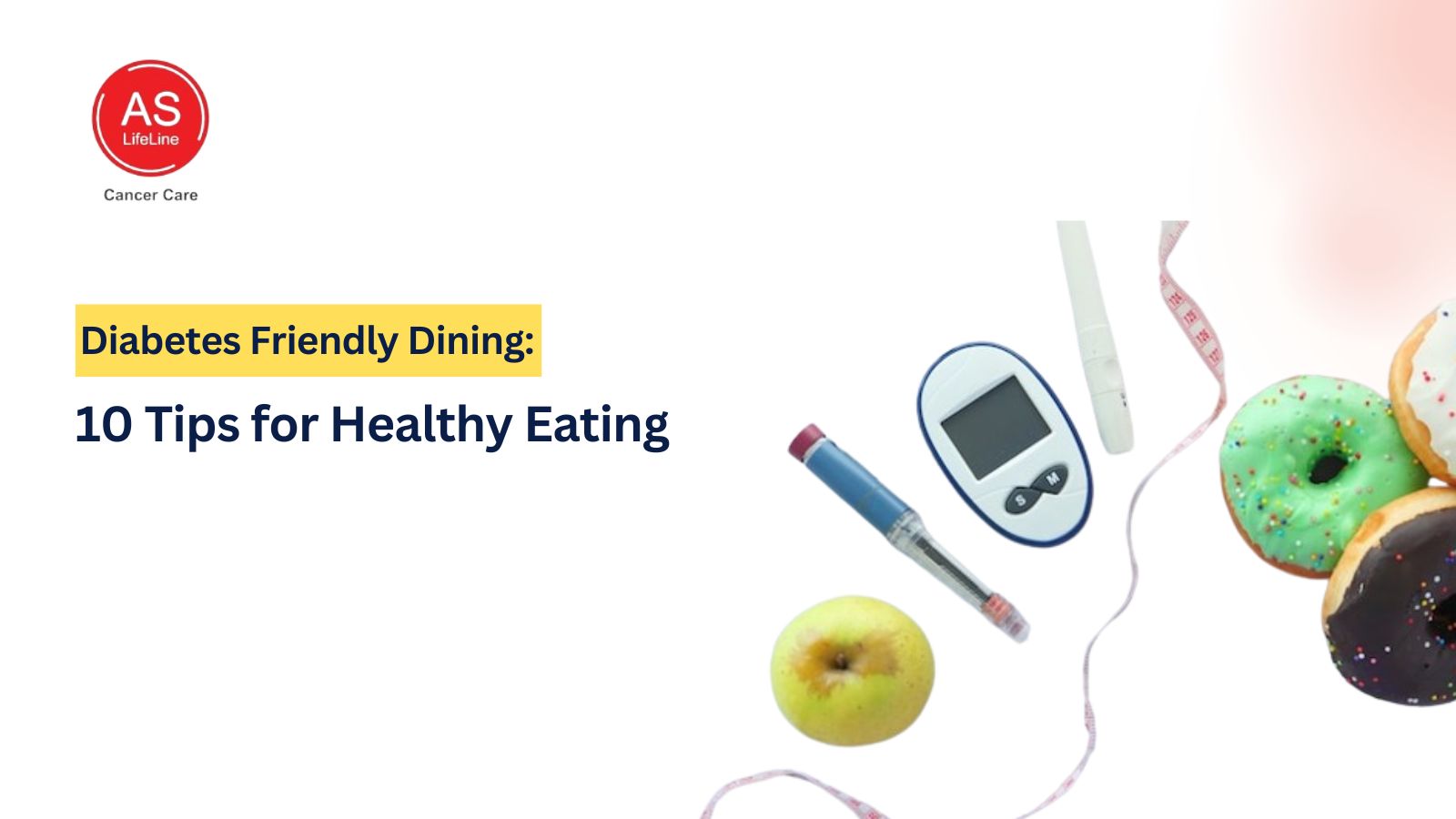Getting diagnosed with cancer is a lot to handle—not just for the person diagnosed but also for their loved ones. The emotional toll can lead to feelings of anxiety, making it essential to address both the physical and mental aspects of this journey. Facing cancer is tough, and it's okay to feel overwhelmed. Cancer anxiety encompasses a range of emotions, including fear, worry, and stress, which can be triggered by the uncertainty surrounding the disease, treatment side effects, and the impact on daily life. It is crucial to know how to cope with cancer anxiety and how to cope with the cancer diagnosis of our loved ones.
We, AS Lifeline Cancer Care Hospital, are committed to assisting you in your journey towards treatment and rehabilitation. Here are some suggestions from our oncology specialists to assist you in managing and coping with cancer.
- Educate Yourself
You can reduce anxiety by gaining knowledge. It is advised to learn about your type of cancer, treatment options, and potential side effects. Understanding your situation empowers you to make informed decisions and reduces fear of the unknown.
- Build a Support System
Opening up about your feelings to friends, family, or support groups is always better. Connecting with those who have experienced similar challenges fosters a sense of community and understanding. In India, about one in every nine people is expected to get cancer in their lifetime, a strong support system provides emotional support, shares coping strategies, and helps alleviate the burden of cancer anxiety.
- Practice Mindfulness and Relaxation Techniques
Practising mindfulness and relaxation techniques like deep breathing, meditation, and guided imagery help in effectively managing anxiety. These activities foster a sense of calm and can be seamlessly integrated into your daily routine, offering relief during moments of stress.
- Set Realistic Goals and Prioritise Self-Care
Cancer treatment can be physically demanding, and it's essential to set realistic goals for yourself. Break down tasks into manageable steps and prioritise self-care. Taking care of your physical and emotional well-being can contribute to an overall sense of control and reduce anxiety.
- Seek Professional Support
Talk to a mental health professional specialising in cancer, like a psychologist or counsellor. They can give you personalised coping strategies and a safe space to share your fears and feelings.
- Stay Active
Regular physical activity has been shown to have positive effects on mental health. Engage in activities that you enjoy and that align with your physical abilities. Exercise can release endorphins, which are natural mood lifters, and contribute to improved well-being.
- Maintain a Healthy Lifestyle
Eating a balanced diet, staying hydrated, and getting enough sleep are essential to a healthy lifestyle. These factors can positively impact your physical health, which, in turn, can contribute to emotional resilience.
- Express Yourself Creatively
Expressing yourself through art, whether writing, painting, or other creative activities, can be a therapeutic way to deal with emotions. Keeping a journal, in particular, lets you reflect on your experiences and follow your emotional journey.
- Reassess Your Life Goals
A cancer diagnosis naturally makes you think about the meaning of life. Use this time to reflect on your values and what matters to you. Spend time on activities that bring you joy, like spending time with your loved ones, listening to music, or painting. Alternatively, find comfort in spiritual practices such as prayer, reading uplifting literature, or writing your life story
- Preserve Your Normal Lifestyle
Facing uncertainty can make the thought of big lifestyle changes overwhelming. That's why taking things one step at a time is a good idea. Try to keep up with your usual routine as much as possible, making adjustments slowly if necessary. Be patient and gentle with yourself and those taking care of you.
- Financial Considerations
Think about the financial effects of a cancer diagnosis, including possible expenses for treatment, medication, and time off work. Don't think of big hospital brands for treatment. Look for a highly qualified doctor who will always be with you. Talk to your healthcare team about resources, asking about insurance coverage, eligibility for disability benefits, and how it might affect life insurance. Many medical facilities have financial aid programs, so look into these options to understand your financial situation during and after treatment.
Conclusion
Managing anxiety during cancer is a continuous process. It involves using different strategies and tailoring them to fit you. Recognizing your feelings, reaching out for support, and making positive lifestyle changes all contribute to building strength and improving your well-being throughout the challenging journey of cancer treatment. Don't forget, it's perfectly fine to ask for help and make your mental and emotional health a priority in your cancer care journey.
AS Lifeline Cancer Care Hospital is dedicated to supporting you every step of the way. Reach out to us for guidance and assistance. Together, we can work towards a positive and resilient future. Don't hesitate to contact us for support, information, or any assistance you may need. Remember, you are not alone in this journey. Stay strong, stay informed, and let's fight cancer together!




